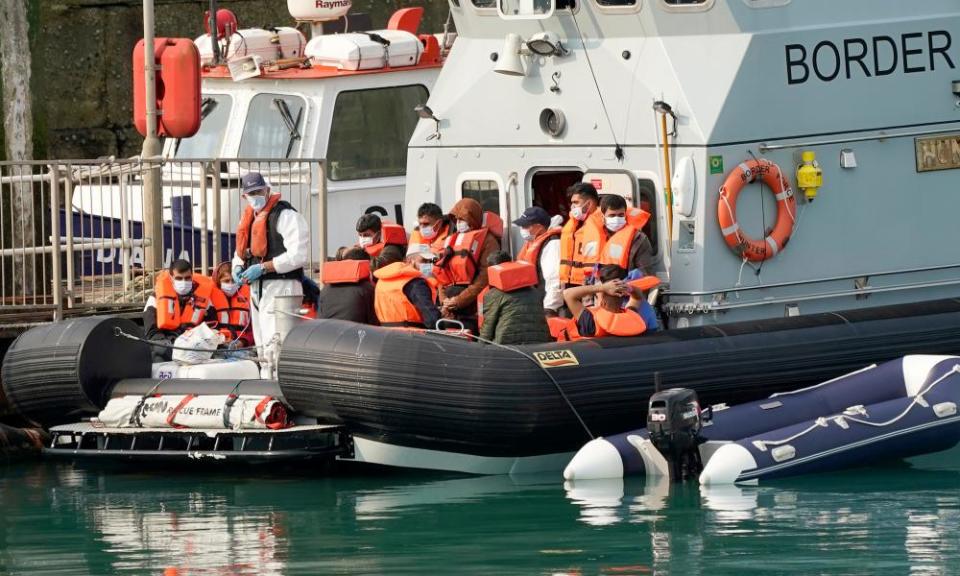Asylum seekers and lessons from history

There is an interesting parallel to the proposal to house 400 asylum seekers in a disused army barracks in Folkestone, about which the local Conservative MP, Damian Collins, and district councillors have registered their protest with the home secretary (Former Kent barracks to house asylum seekers who arrived by boat, 15 September).
In the summer of 1939, some 4,000 refugees, also mainly men in their 20s and 30s (including my father and uncle), were housed in the derelict Kitchener Camp army barracks on the outskirts of nearby Sandwich. Similar objections were raised by some local politicians to the imminent arrival of so many foreigners, mainly from Germany and Austria. While the influx could have overwhelmed the small Kentish town with a population of just 3,500, they were largely welcomed – to the benefit of both the refugees and the local community.
Paul Secher
London
• Thank God for the judge who stopped the expulsion of 20 asylum seekers on a charter flight (UK judge halts Home Office flight to remove asylum seekers, 16 September), some from Yemen and Syria. Please do not tell me that, having so very sadly lost more than 40,000 people to Covid-19 this year, we do not have room for the 1,000 desperate, courageous and often highly skilled asylum seekers whom Priti Patel has pledged to remove before the end of the year.
Rachel A Elliott
Isle of Benbecula, Outer Hebrides
• I see that Border Force has named one of its coastal patrol vessels Speedwell, pictured intercepting migrants in Dover after they were rescued in the Channel in a photo alongside your report in the print edition (No 10 plans to ‘opt out’ of human rights laws to speed up deportations, 14 September). The original Speedwell was the ship withdrawn from its voyage with the Mayflower in 1620 after springing a leak twice. Not an auspicious name for a modern vessel, and one that jars as we celebrate the 400th anniversary of the Mayflower’s epic voyage.
A more appropriate name for the vessel would have been Swiftsure, the Speedwell’s original name. As the Swiftsure, it was part of the fleet that defeated the Spanish Armada. That name would surely have chimed with this government’s hostile relationship with the rest of Europe.
David Edwards Hulme
Stockport, Greater Manchester
• Join the conversation – email guardian.letters@theguardian.com
• Read more Guardian letters – click here to visit theguardian.com/letters

 Yahoo News
Yahoo News 